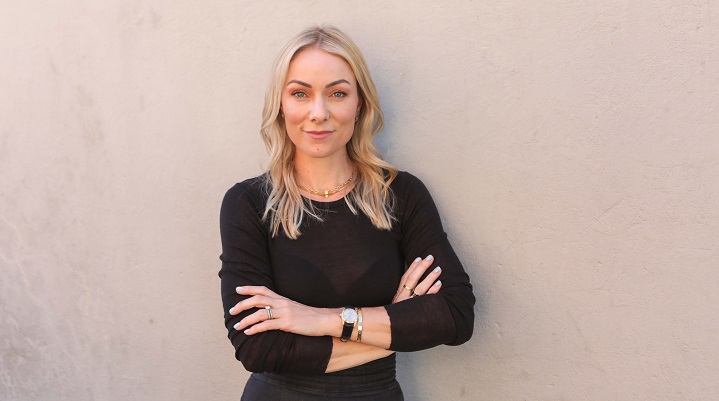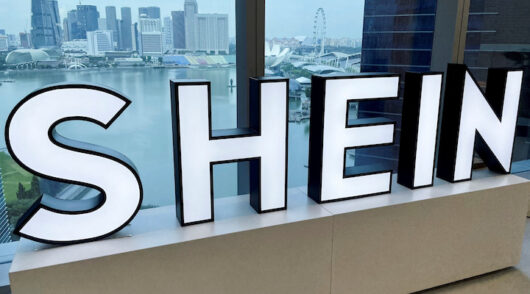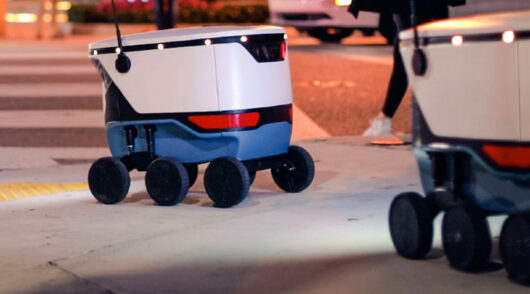AirRobe is a fashion tech company that is aiming to kick the resale market into high gear. Here, Beth Glancey, the GM at the start-up, gives her take on why resale isn’t already a larger chunk of the market and explains the challenge of going from a large, established player to a challenger.
Inside Retail: Resale has been on fashion’s radar for a few years now. What do you think the industry still needs to do to get it right?
Beth Glancey: I would say we’ve dipped our toe in as an industry. Brands participating in resale and rental is new and different for them, so understandably brands are proceeding with caution. What do I think we need to do? Wholly embrace it. Lean in, be part of it, facilitate the ease for their customers, rather than resist it, as their customers are participating in re-commerce anyway. The more a brand can facilitate the process and be involved, the more they can control the way their brand shows up, stay connected to the product after its first sale, gain insights and ultimately commercially benefit. The biggest misconception in resale is that it will cannibalise the primary sale, but all our research shows its two very different customers. The customer who wants to shop in the primary space and easily resell their wardrobe later is very distinct to the customer who wants to shop pre-loved. Their motivations are different.
IR: What do you think are consumers’ greatest misconceptions of the resale industry?
BG: That it’s too hard – and to be fair, it has been. The listing process has not evolved since eBay launched 25 years ago. AirRobe is solving that by allowing customers to resell, rent, or recycle in seconds. We remove the manual listing process and, therefore, the effort required to create listings. With AirRobe, a customer could have 20 items listed to resell on the marketplace in under a minute. It literally couldn’t be easier.
IR: If you could change anything about the fashion industry tomorrow, what would it be and why?
BG: To move towards circular models faster. We have a crisis on our hands; we are producing more products than ever, while wearing them less as consumers and discarding them faster. We literally are going to run out of places to put our waste. Most textiles can’t be recycled or aren’t, 85 per cent of all fashion ends up in landfills and as an industry we contribute 10 per cent of the total global CO2 emissions. The good news is, we can collectively make extraordinary change if we simply move faster in our adoption of circular practices. As a brand operating in the fashion industry, those changes can be throughout the value chain, from production and ethical sourcing through to end-of-life management. There are so many emerging technologies and businesses in this space, working to reduce the friction and expedite adoption, there are really no more excuses. It’s about prioritising the work and commencing the journey.
IR: You previously worked at major brands at LVMH. How have those experiences shaped you as a retail leader today?
BG: I have been privileged enough to work with some of the most loved and well known luxury brands in the world. The opportunities LVMH afforded me are plentiful – from access to some of the most respected leaders of our time, to world-first technology and innovation. I have learnt many things but, most deeply, how to build a brand customers love. How to balance and marry the deep heritage of classic brands with innovation and culture to create the most hyped and desired products in the world. The LVMH engine is truly a force.
IR: What has it been like going from a luxury giant like LVMH to a start-up and what have you learnt along the way?
BG: Two words: cultural whiplash. It’s been terrifying, challenging, rewarding, and invigorating, all at once. My three main lessons (so far) are:
- Get comfortable with progress over perfection: at a technology start-up like AirRobe, the first-mover advantage is everything. So speed, adoption, and market share are what matter most. You have to keep moving forward, otherwise you’ll be steamrolled.
- #LFG: this is our principle value at AirRobe, which stands for “Let’s F**king Go”. It embodies the need for action and the spirit of 10x. Corporate muscle memory is to stop, think, analyse, ask permission, and act. AirRobe = Just start. Beg for forgiveness [later, if necessary]. To be successful in a start-up, you need to thrive in the unknown and uncomfortable. We’re building the plane while we’re flying it.
- Ask for help: You’re not hired to know the answers, you’re hired to figure them out. So use your network, ask for help, take the favour. As an ex-corporate, we tend to be very private, as we’re expected to have the knowledge within. It’s been very empowering coming from a position of, “We don’t know if this will work, can I ask some people and see?”
IR: What is one of the biggest mistakes you’ve made during your career?
BG: Saying no to a promotion because I felt I wasn’t ready. PSA: You never think you’re ready. And if you are, the job you’re going for is too safe. Leap and pull the parachute pin later. A very close second-worst mistake followed shortly after taking said promotion. It took me a while to realise I wasn’t hired to have all the answers myself, I was hired to figure them out.
This story first appeared in the November 2022 issue of Inside Retail Magazine.






